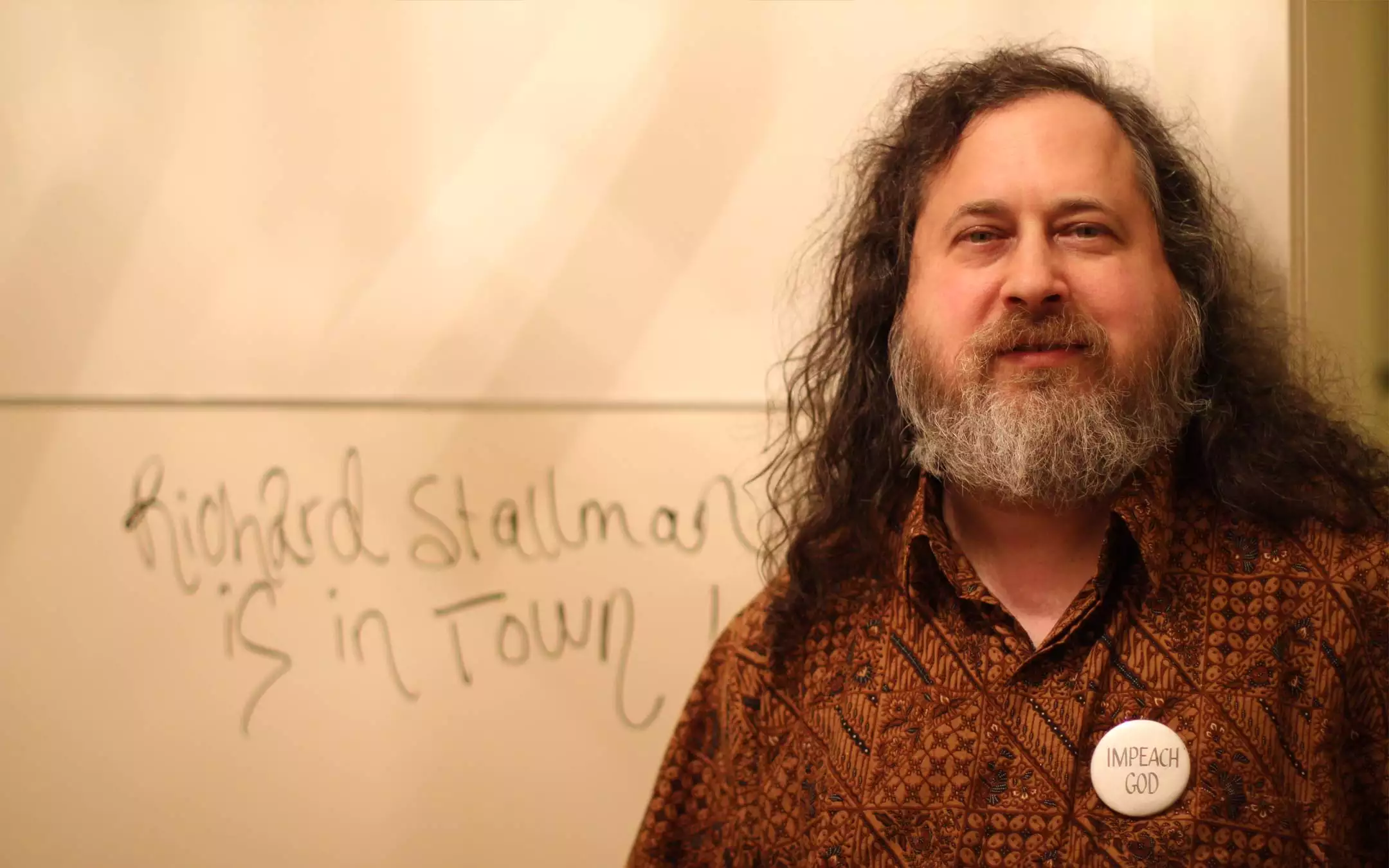Richard Stallman @Unibo

| Date and Time | Location |
|---|---|
| Il giorno 09 aprile 2024 dalle ore 15 alle ore 17 | in AULA D BERTI PICHAT, Viale Carlo Berti Pichat, 6-6/2, Bologna |
Richard Stallman terrà un seminario dal titolo: “Software libero and freedom in the digital society”
Il seminario è aperto al pubblico.
Per seguirlo da casa: http://live.students.cs.unibo.it
Se te lo sei perso lo abbiamo registrato: http://media.students.cs.unibo.it/rms-hls.webm
NOTA: per motivi di salute dell’ospite è obbligatorio l’uso della mascherina che copra naso e bocca.
Abstract:
There are many threats to freedom in the digital society. They include massive surveillance, censorship, digital handcuffs, nonfree software that controls users, and the War on Sharing. Computers for voting make election results untrustworthy. Other threats come from use of web services. Finally, we have no assured right to make any particular use of the Internet; every activity is precarious, permitted only as long as companies are willing to cooperate with our doing it. All of these threats originate more or less in the use of nonfree software. That is why free software is the first battle in the liberation of cyberspace.
Bio:
Richard Matthew Stallman (born March 16, 1953) is an American computer programmer and free-software advocate. He is widely known by his initials, rms. Stallman campaigns passionately for software to be distributed in a manner that grants users the freedom to use, study, distribute, and modify that software.
Here’s a brief overview of his life and contributions:
- Education: Stallman graduated from Harvard University in 1974 with a degree in physics. MIT Years: From 1971 to 1984, he worked at the MIT Artificial Intelligence Lab, where he developed system software. Notably, he created the first extensible text editor called Emacs in 1976 and contributed to the AI technique of dependency-directed backtracking (also known as truth maintenance) in 1975.
- Free Software Movement: In 1983, Stallman launched the Free Software Movement by announcing the project to develop the GNU operating system, which aimed to consist entirely of free (freedom-respecting) software. He began working on GNU in 1984 after resigning from MIT employment.
- GNU Project and Copyleft: Stallman established the Free Software Foundation in October 1985. He invented the concept of copyleft, which allows users to modify and redistribute software while preserving its freedom. The GNU General Public License (GPL), co-written by Stallman, implements copyleft and has inspired initiatives like Creative Commons.
- Software Contributions: Stallman personally developed several widely used software components of the GNU system, including the GNU Compiler Collection, the GNU symbolic debugger (gdb), and GNU Emacs. The GNU/Linux system, which combines GNU software with the Linux kernel developed by Linus Torvalds, powers tens or hundreds of millions of computers worldwide.
- Advocacy and Travel: Nowadays, Stallman focuses on political advocacy for free software and its ethical principles. He travels extensively, speaking on topics such as “Free Software And Your Freedom,” “Copyright vs Community in the Age of Computer Networks,” and “A Free Digital Society.”
- Inspirations: Stallman’s call for a free online encyclopedia helped inspire the creation of Wikipedia. His contributions have been recognized with awards, including the MacArthur Foundation Fellowship and the Association for Computing’s Grace Murray Hopper Award. For further insights, you can explore his book of essays titled “Free Software, Free Society” and his semiautobiography “Free as in Freedom”.